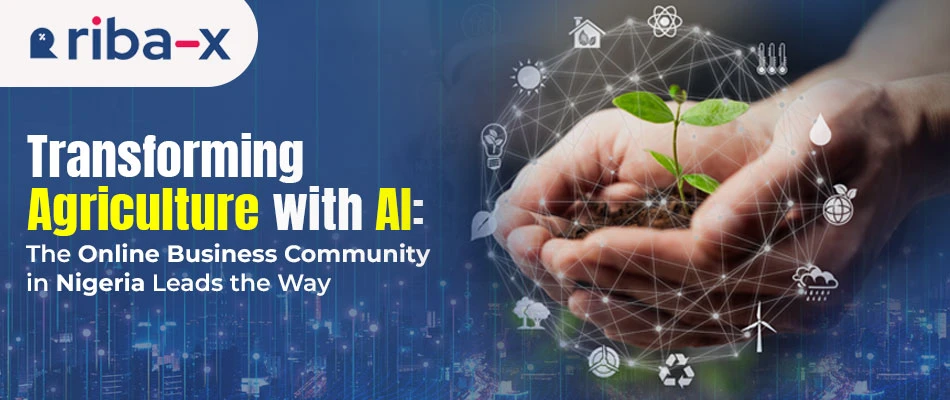 Omobola Ogbolu
3 months ago
Omobola Ogbolu
3 months ago
Overview
Transforming Agriculture with AI: The Online Business Community in Nigeria Leads the Way
Nigeria’s agriculture is undergoing a remarkable transformation. The online business community is at the forefront of this transformation. They are using artificial intelligence (AI) to address long-standing challenges in the agricultural sector.
This unique approach is changing how farmers work for the business community in Nigeria and creating new opportunities for economic growth and food security.
The Present Agricultural Landscape in Nigeria
Nigeria faces significant agricultural challenges. With limited access to information, small-scale farmers struggle with low productivity and unpredictable environmental conditions.
Traditional farming methods of community platforms in Nigeria have often resulted in low yields and economic instability for rural communities.
Right now, AI is emerging as a powerful tool to overcome the barriers. To support Nigerian farmers online platforms and tech-savvy entrepreneurs are developing solutions. These innovations are making agriculture more efficient, profitable, and sustainable.
Crop Monitoring and Prediction With AI
One of the most exciting developments is AL-powered crop monitoring technology. This development includes:
- Using satellite imagery
- drone technology
- machine learning algorithms.
With the help of all these farmers can now: - Detect crop diseases early
- Predict potential yield outcomes
- Monitor soil health in real-time
- Identify the ideal time for planting and harvesting.
Farmers can have some actionable insights with these technologies that were previously unavailable
For the business community in Nigeria, young Nigerian tech entrepreneurs are creating mobile applications.
These can translate complex data into simple and understandable recommendations.
Precision Agriculture Takes Center Stage
Farming practices are now revolutionizing through precision agriculture. AI systems help farmers optimize resource usage by:
- Calculating exact water requirements
- Determining precise fertilizer needs
- Mapping crop health across different field sections
- Reducing waste and improving overall farm efficiency
Farmers can now produce more with fewer resources with these targeted approaches. All these are particularly crucial in regions with limited agricultural infrastructure.
Market Access and Price Optimization
The online business community in Nigeria powered by AI is bridging the gap between farmers and markets.
- These innovative solutions help farmers:
- Understand real-time market prices
- Connect directly with buyers
- Predict market trends
- Make informed selling decisions
By providing transparent and accessible market information, these platforms empower farmers to negotiate better prices and reduce intermediary costs.
Training and Skill Development
The business community in Nigeria is not just providing technological solutions but focuses on education and skill development.
AI-driven learning platforms offer:
- Personalized agricultural training modules
- Video tutorials on modern farming techniques
- Interactive workshops
- Language-specific content for diverse Nigerian communities.
These educational resources are helping farmers adapt to new technologies and improve their agricultural practices.
Overcoming Challenges and Limitations
Despite the progress, challenges remain. Limited internet connectivity, high technology costs, and digital literacy barriers can slow adoption. However, Nigerian entrepreneurs are addressing these issues through:
- Low-cost technology solutions
- Offline-capable applications
- Community training programs
- Partnerships with local governments and international organizations.
Economic and Social Impact
The integration of AI in agriculture is creating significant economic opportunities. Young Nigerian entrepreneurs are:
- Creating jobs in the tech and agricultural sectors
- Attracting investment to agricultural technology
- Improving food security
- Empowering rural communities.
Conclusion
All the business community platforms in Nigeria are demonstrating how AI can transform traditional agricultural practices. Entrepreneurs are creating a more efficient and sustainable also prosperous agricultural ecosystem. To create these they are combining technology and innovation with local knowledge.
The journey has just begun, but the potential is immense. Nigerian agriculture stands at the cusp of a technological revolution as AI continues to evolve. These can serve as a model for agricultural transformation worldwide.



